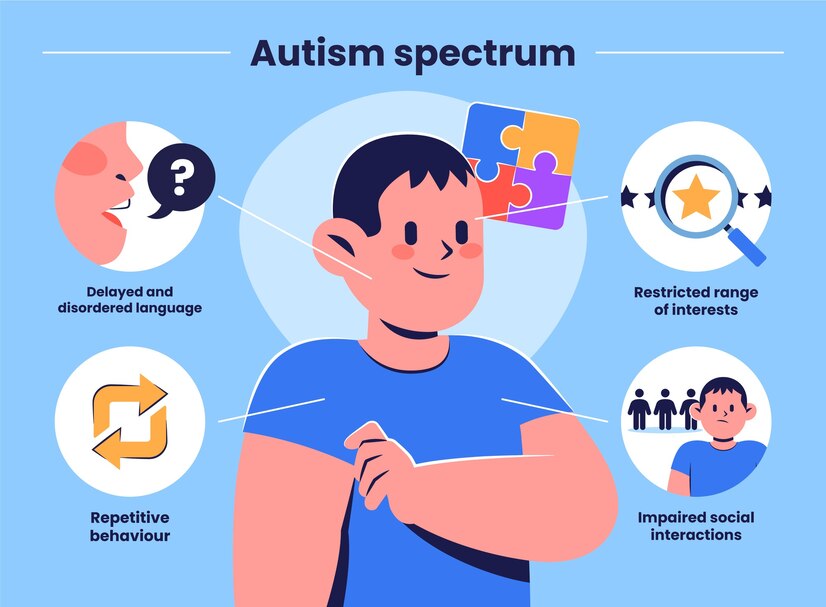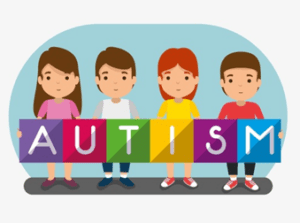Autism Management for Children – Practical Approaches for Parents
- Dr Owais Rafiq
- September 28, 2023
- 8:53 pm

Management of autism spectrum disorder in children involves a comprehensive approach that encompasses various aspects of a child’s life. From home to school and beyond, parents play a vital role in creating a supportive environment for their child with autism spectrum disorder (ASD). By staying informed, seeking professional guidance, and fostering a nurturing atmosphere, parents can empower their children with ASD to thrive and reach their full potential.

How Parenting can be helpful in the Management of Autism Spectrum Disorder in Children?
Effective parenting plays a pivotal role in the management of Autism Spectrum Disorder (ASD) in children. Addressing challenging behaviors in children and teenagers with Autism Spectrum Disorder (ASD) necessitates a comprehensive grasp of triggers and motivations. Employing a strategic approach empowers parents to effectively manage and alter difficult behaviors, fostering a nurturing environment for their child’s development and well-being.

Also read, Understanding Autism Spectrum Disorder
Identify and Avoid Triggers
In the process of management of autism spectrum disorder, focus on the behavior that needs to be changed, like yelling when upset. Record it for 1-2 weeks, noting events before and after. This reveals patterns, helping uncover triggers and the behavior’s purpose. Once triggers and underlying needs are understood, make targeted changes to address the behavior.

Make a Consistent Routine
Individuals on the autism spectrum thrive in predictable environments and routines. Consistency provides a sense of security and allows them to practice skills learned from therapy effectively.
- Utilize visual aids like picture timetables to create structured routines.
- Offer warnings or cues before changing routines, using visual aids or social stories to explain transitions.
- Introduce potentially overwhelming environments gradually, adapting to your child’s comfort level.
- Anticipate challenging situations and plan accordingly, avoiding them when your child is tired or uncomfortable.

Focus on Positive Reinforcement
Positive reinforcement is crucial for the management of autism spectrum disorder. Acknowledging ASD children’s achievements boosts self-esteem. Recognizing specific behaviors with praise and simple rewards like playtime or stickers encourages continued positive actions.

Incorporate Play
Participating in enjoyable activities can aid in the management of Autism Spectrum Disorder, promoting relaxation, communication, and well-being.

Expose to Everyday Activities
Expose your child to everyday activities, even if their behavior appears unpredictable. Familiarizing them with routine tasks like grocery shopping or errands can help them become more accustomed to the world around them. Gradually exposing them to different situations can aid in reducing anxiety and increasing their comfort level.

Encouraging Cooperative Behavior
Cooperative behavior is essential for academic success and social relationships. Employ strategies like setting boundaries, giving clear instructions, and offering choices to foster cooperative behavior. Teach your child to express their needs using words, signs, or symbols, fostering independence.

Promoting Social Interactions
Parents can promote social interaction in children with ASD by arranging playdates with peers, facilitating shared activities like board games, and practicing turn-taking during conversations. Encourage interactions based on shared interests, such as discussing favorite hobbies.

What Accommodations Are Needed at School to Manage ASD?
Collaborate with teachers to exchange insights about your child’s strengths, challenges, and successful approaches from home.
- Create a Structured Environment with clear routines, visual schedules, and cues, aiding their comprehension of expectations and transitions throughout the school day.
- Offer Social Skills Training within the school to foster essential abilities like effective communication, perspective-taking, and friendship-building.
- Provide sensory supports, including sensory breaks, designated calm spaces, noise-canceling headphones, or fidget tools to help manage sensory sensitivities.
- Craft an Individualized Education Program (IEP) tailored to an ASD child’s needs, ensuring a supportive learning experience. These include:
- Customized academic, social, and behavioral goals.
- Extended time for tasks
- Preferential seating arrangement
- Speech therapy or counseling.
- Detail progress monitoring

How can you Manage a Meltdown?
A meltdown is an intense emotional response triggered by sensory overload or frustration, leading to distress. If your child experiences a meltdown, it’s crucial to approach the situation with empathy and understanding.
- Stay Calm and maintain a composed demeanor to create a soothing environment.
- Ensure your child’s safety by removing any potential hazards from their surroundings. A safe space can help them feel protected and minimize any potential harm.
- Implement calming techniques like playing soft and soothing music, dimming the lights, or using a weighted blanket.
- Offer physical comforts, such as a gentle touch or a warm hug, if your child is open to it.
- Don’t force your child to stop as it can escalate the situation. Give them the time they need to express their feelings and emotions.
- After the meltdown subsides, talk to your child about what might have triggered it. Gently inquire about their feelings and thoughts.
Your presence and support can provide reassurance during this overwhelming time.

Do Medications Cure ASD?
While there’s no cure for core ASD symptoms, medication might help in the management of autism spectrum disorder-related issues like anxiety, hyperactivity, or sleep problems. Careful monitoring and collaboration with healthcare providers are crucial for optimal outcomes in children with ASD (Autism Spectrum Disorder).

Dr Owais Rafiq
Subscribe to Dr Owais YouTube channel
For parenting advice, child health, symptoms, causes and treatment of illness in children.





